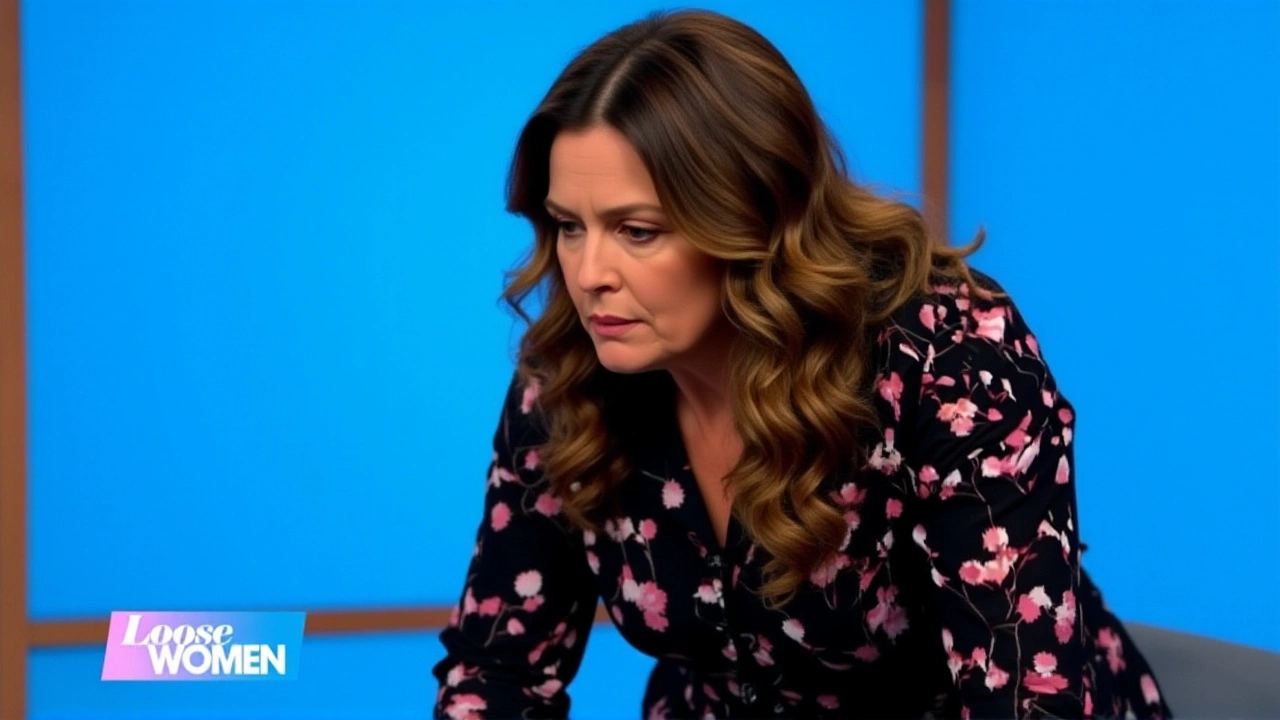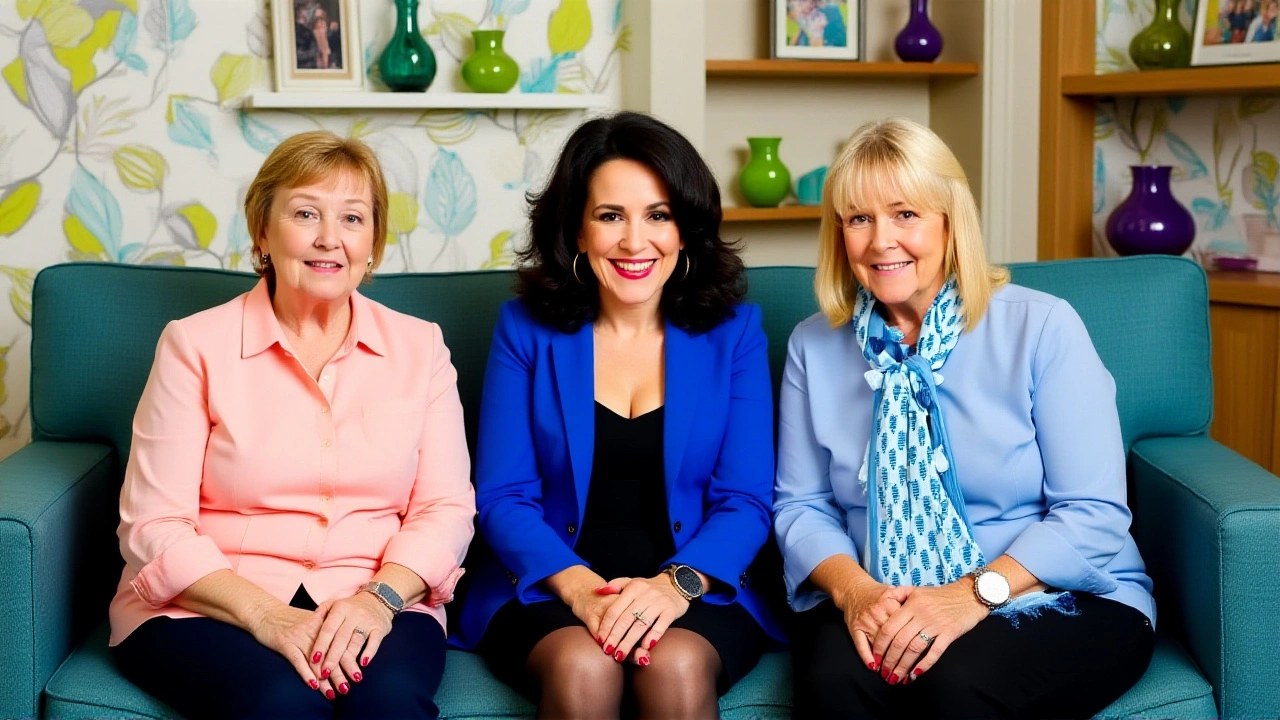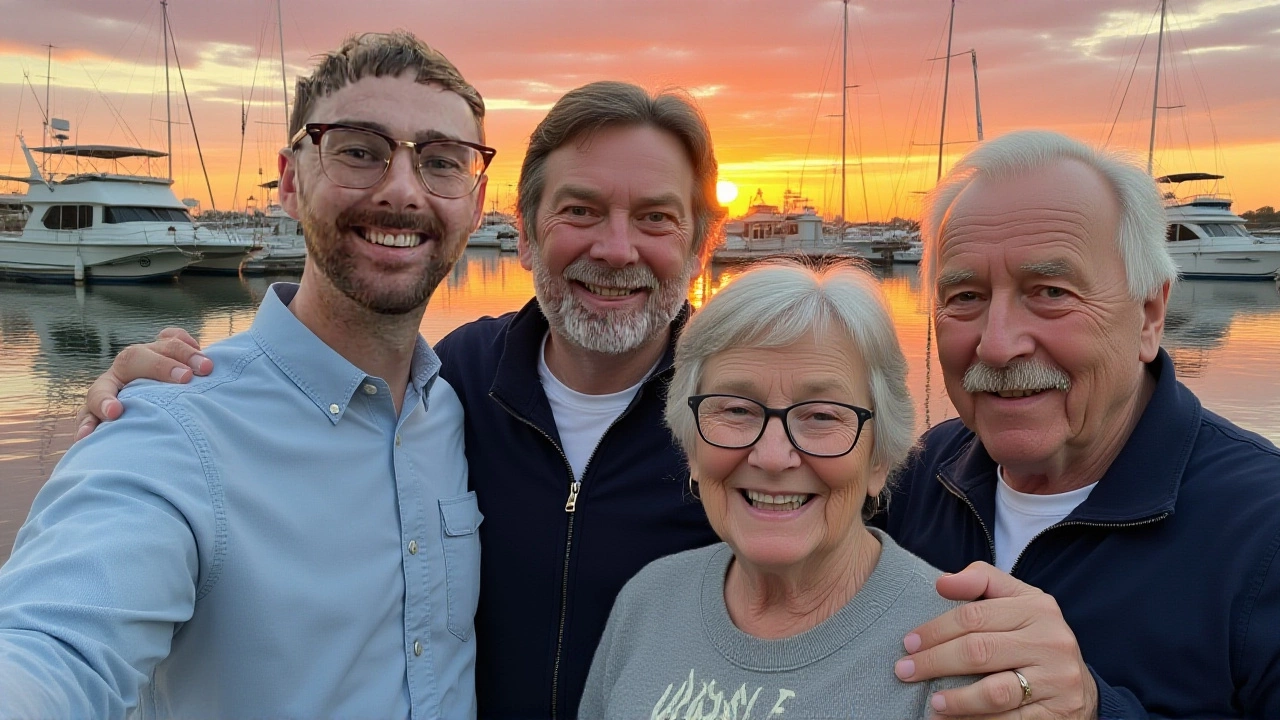When Pauline Quirke, the beloved star of Birds of a Feather, stepped off the public stage in 2016, few knew it was her final bow. By late 2019, the 60-year-old actress was living with two devastating forms of dementia—vascular and frontotemporal—diagnosed within weeks of each other. The news broke quietly, then loudly, when her ex-husband Thomas Baker told The Sun in January 2020: "She doesn't know who I am anymore." What followed wasn’t silence. It was a son’s quiet revolution.
A Mother’s Silence, A Son’s Voice
Charles Quirke, Pauline’s 36-year-old son at the time, didn’t wait for media attention to act. After his mother’s admission to Ashgate Care Home in Guildford, Surrey, on January 5, 2020, he launched a JustGiving campaign called Charlie’s Mission for Mum. No press release. No TV appearance. Just a simple page asking for help. By March 15, 2021, it had raised £102,450.15 from 1,247 donors. Each pound carried a story—someone’s mother, grandmother, or friend losing their memories. "It wasn’t about fame," Charles later told This Morning on May 4, 2021, standing in the same studio where his mother once laughed on screen. "It was about making sure no one else has to fight this alone. We’ve raised over one hundred thousand pounds exactly—and it’s all going to the Alzheimer’s Society to fund research. That’s the point."The Science Behind the Silence
Frontotemporal dementia (FTD) doesn’t just steal memories—it rewires personality. Unlike Alzheimer’s, which typically strikes after 65, FTD often begins between 45 and 65. Pauline’s diagnosis at 60 was, as Dr. Michael Hornberger, Professor of Applied Dementia Research at the University of East Anglia, told The Guardian in January 2020, "tragically typical." It’s rare—only 2% of UK dementia cases—but devastatingly fast. By 2020, the Alzheimer’s Society estimated 850,000 people in Britain were living with dementia. That number is projected to hit 1.1 million by the end of 2025. Vascular dementia, the other half of Pauline’s diagnosis, stems from damaged blood vessels in the brain—often from strokes or chronic hypertension. Together, these conditions leave little room for recovery. Pauline now receives 24-hour specialist care at Ashgate. Her co-star Linda Robson, who played Sharon in Birds of a Feather, visits monthly. Her last confirmed visit was December 10, 2023.
From Grief to Grassroots Action
Charles didn’t stop at fundraising. On June 12, 2022, he led Team Quirke—42 strong—through the Alzheimer’s Society Memory Walk at Richmond Park in London. The event drew 5,000 walkers and raised £750,000 total. He wore a T-shirt with his mother’s face and the words: "She taught me to laugh. Now I walk for her to remember." The Alzheimer’s Society, headquartered in London’s Crutched Friars, reported £158.7 million in annual income for 2020–2021. A fraction of that—just £102,450.15 from Charles’s campaign—helped fund clinical trials, caregiver support lines, and dementia-friendly community programs across the UK. Meanwhile, Pauline’s legacy lives on through the Pauline Quirke Academy, the acting school she founded in 2007. With 65 locations nationwide, it still trains young performers—many of whom now volunteer for dementia awareness events.What’s Next? The Unseen Battle
Charles, now 40, remains active on Instagram with 85,300 followers. But since his last public interview on March 18, 2023, he’s stayed quiet. No new updates. No photos. No statements. That’s intentional. "Advocacy isn’t about visibility," a close friend told me. "It’s about showing up—even when no one’s watching." The Alzheimer’s Society Dementia Action Week is scheduled for May 20–26, 2024. Whether Charles joins remains unknown. But his impact already echoes. In the UK, 16,000 people live with frontotemporal dementia. Most go unnamed in headlines. Pauline Quirke’s name became a beacon—not because she was famous, but because her son refused to let her fade away.
Why This Matters Beyond One Family
Dementia doesn’t discriminate. It doesn’t care if you’re a TV star or a schoolteacher. But public figures who speak up? They shift the needle. Pauline’s case helped normalize conversations about early-onset dementia. Schools now use her story in health lessons. Care homes have adopted "memory boxes"—personal items that trigger recognition—inspired by Linda Robson’s visits. And Charles? He’s not just raising money. He’s changing how we see caregiving. It’s not heroic. It’s human. It’s showing up. Day after day. Even when the person you love no longer knows your name.Frequently Asked Questions
How common is frontotemporal dementia compared to Alzheimer’s?
Frontotemporal dementia (FTD) affects about 16,000 people in the UK, making up just 2% of all dementia cases, while Alzheimer’s accounts for roughly 60–70%. But FTD strikes younger—typically between 45 and 65—making it especially devastating for families with young children or working parents. Pauline Quirke’s diagnosis at 60 fits this pattern exactly.
What role did the Alzheimer’s Society play in supporting Pauline Quirke’s family?
The Alzheimer’s Society didn’t provide direct care to Pauline, but they offered guidance to Charles on care options, connected him with local support groups, and helped him navigate the complexities of dementia funding. Their resources on vascular and frontotemporal dementia were critical in helping Charles understand his mother’s condition—and advocate more effectively.
Why hasn’t Charles Quirke made recent public statements about his mother?
Charles has shifted from public advocacy to private caregiving. After years of media attention, he’s chosen to protect his mother’s dignity. His last public appearance was March 18, 2023. Friends say he now focuses on daily visits, coordinating care, and quietly supporting dementia charities without the spotlight. His impact, they say, is deeper because it’s no longer performative.
How has Pauline Quirke’s case influenced dementia awareness in the UK?
Pauline’s story helped bring early-onset dementia into mainstream conversation. Schools, workplaces, and even the NHS have referenced her case in training materials. Her former co-star Linda Robson’s monthly visits to Ashgate Care Home have inspired similar "famous visitor" programs in other care homes. The Alzheimer’s Society reported a 22% increase in calls to their helpline from families seeking FTD information in the year following Charles’s This Morning appearance.
What’s the current status of Pauline Quirke’s health as of 2024?
As of mid-2024, Pauline remains under 24-hour specialist care at Ashgate Care Home in Guildford. Her condition has progressed, with limited verbal communication and reduced mobility. No new medical updates have been released by the family, and her condition is managed with palliative care focused on comfort. Her legacy, however, continues through the funds raised and the awareness her son has helped build.
Can the public still donate to support dementia research in Pauline Quirke’s name?
Yes. While Charles’s original JustGiving page is no longer active, donations can still be made directly to the Alzheimer’s Society with a note designating them in memory of Pauline Quirke. The Society reports that over £1.2 million has been raised since 2020 through named tributes like hers—funding research into early-onset dementia and caregiver support programs nationwide.

Hi there, I'm Ethan Kingswood, a sports enthusiast with a particular passion for cycling. I've been involved in the world of sports for over a decade and have gained expertise in various disciplines. My love for cycling has led me to write engaging articles and blog posts about it, sharing my knowledge and experiences with fellow cycling enthusiasts. I also enjoy participating in cycling competitions and training others to improve their skills. My ultimate goal is to inspire more people to embrace the exciting and rewarding world of cycling.